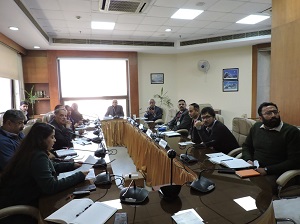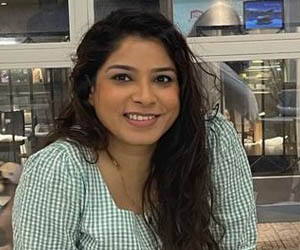The Vivekananda International Foundation (VIF) organised a Round-Table Discussion on “Evolving Myanmar Crisis and Implications for India” on 01 February 2023. Dr Arvind Gupta, Director VIF, gave the opening remarks, followed by brief presentations by Amb Rajiv Bhatia and Amb Gautam Mukhopadhaya. Before the presentations, a brief introduction to the current developments in Myanmar was given by Cchavi Vasisht. 01 February 2023 marked the completion of two years of military rule in Myanmar, and within these two years, the country witnessed intensified conflict and displacement. The military, the National Unity Government (NUG) and its People Defence Forces (PDFs) and Ethnic Armed Organisations (EAOs) are fighting an unrelenting war leading to a civil war-like situation in the country. As per the 2008 Constitution, the emergency rule needs to end, and the National Defence and Security Council has to conduct the elections in the next six months. However, in its meeting on 31 January 2023, it stated that the country is unstable.
The discussion focussed on whether the elections will be held or further deferred, what are the challenges for the country, how it can solve them, and what are the options for India. Myanmar is not unfamiliar with coups, and this is the third military coup, the earlier two being in 1962 and the 1990s. However, the current situation is different from the previous two coups. The discussion focussed on whether the elections would take place in 2023 or not. There is speculation that the elections will be delayed. The military lacks legitimacy; the opposition forces have failed to provide a coordinated common front. Therefore, at this moment, EAOs may be the most powerful stakeholder in the country. However, these EAOs can't agree on common interests, and there is no central figure for negotiation. Aung San Suu Kyi has been potentially kept out of politics with 33 years of imprisonment.
While discussing India's options, it was stated that India's fundamental policy has not changed. The dual-track policy means that the Indian Government will deal with the Government of the day and also support the local people. To summarise, India needs to re-establish the talks through the military channel as it was done earlier. India should also keep channels open to certain EAOs, especially the ones bordering India, such as Chins and Kachins. India is also concerned with the rise in the influx of refugees, especially in Mizoram, and therefore, should soon deliberate on formulating refugees and immigration policies. India could also bring in external actors as well. A few options were deliberated during the discussion, such as Russia, Japan, Bangladesh, and the US. ASEAN plus framework could also be explored to reach a consensus. Finally, India needs to re-establish its people-to-people ties.
The discussion concluded by emphasising the need to have an accurate assessment of the situation in Myanmar and adopt a multi-stakeholder approach. The idea of collective leadership in this scenario could be a plausible option. Furthermore, India must keep its military channels open for security and stability at the borders. Calibrated engagements with the people must be deliberated upon, and India should keep its channels of communication open.









Post new comment